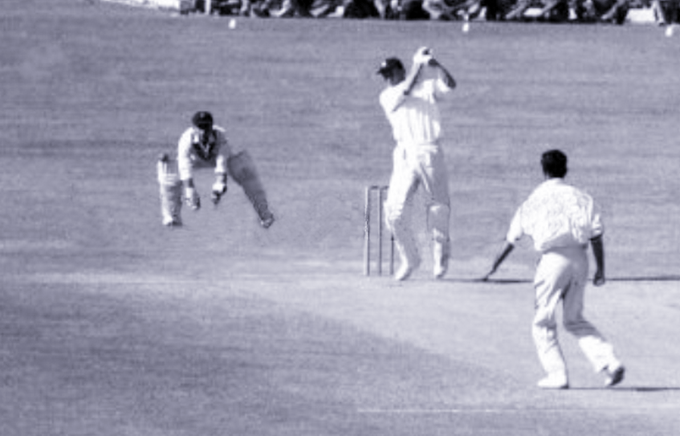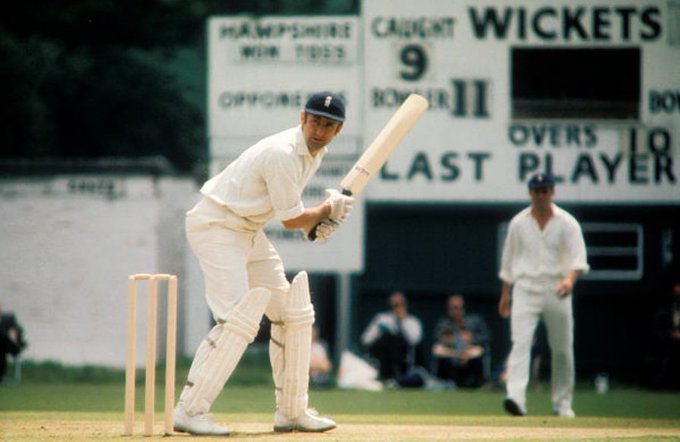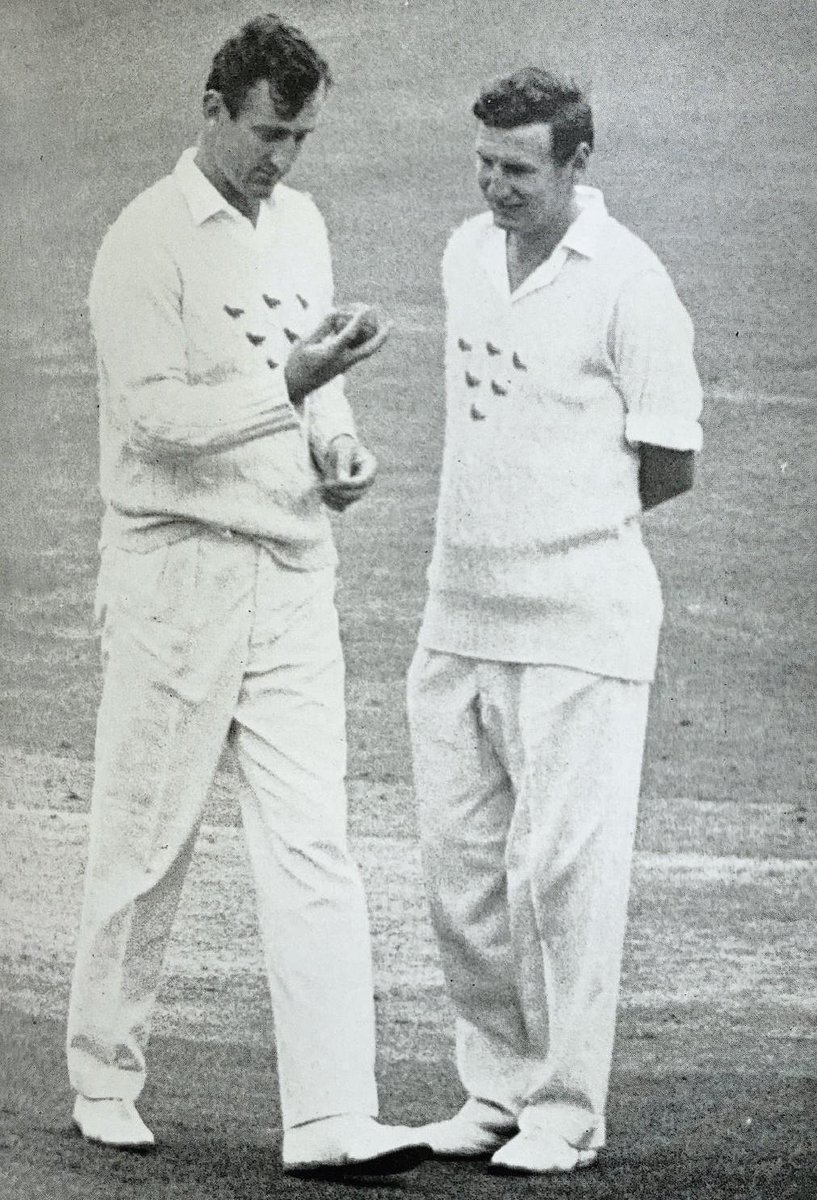Cricket is a simple pleasure. Or so it should be, says Ted Dexter, who regrets the ritualization that has overtaken the game at the top level. Going to a cricket match should be a simple pleasure, like taking a joyful walk in the park.
That is the traditional, ideal view of playing cricket. If it means booking a ticket way ahead to see the Australian and setting off at all hours of the morning to be there on time, then it all becomes too serious to be called sport.
I often wonder what level of involvement, passion, and commitment is the right one. Take it as it comes or goes the whole hog and support one team through thick and thin. Certainly, it doesn’t take a lot to put people off watching cricket if the ingredients are wrong.
I met a man the other day who religiously followed the Cambridge lads during his holidays. He obviously felt part of the show until he turned up one day to find a better team, viz., combined universities. It isn’t the same,’ he told me as he planned a few days at the seaside with his wife.
There is much to be said at one end of the scale for knowing as little as possible about the players taking part. Only then is it possible to watch with an absolutely open mind, free of anxiety for So-and-So to do well and free of the need to make excuses for So-and-So if he resoundingly fails?
When I compare a recent two-hour stint at Fenner’s watching two West Indian batsmen make 50 apiece with a match between unknowns on Parker’s Piece on the same afternoon, there is no question which of the two I remember more vividly.

The after-hours game provided many more thrills, with a run-out, a missed catch, and all that lusty vocal support from the batting side in the pavilion. They all remained a mystery that I have no wish or reason to solve.
How different it inevitably is these days when a test match is in the offing. There are no secrets about any of the team members because they have already appeared on television many times, their form has been analyzed, and their social lives have been served up on a plate for public consumption.
The Honeywell Computer has its career records stored away in electronic limbo waiting for the appropriate button to be pressed, and their every move on the field is not only analyzed for its intrinsic value but is compared against a variety of other standards.
Is he playing at his best? Is he batting, bowling, or fielding well because he is on form or because the opposition is below par? How does his performance compare with his contemporaries’, and does it suffer or stand out against the giants of previous generations?
Watching this kind of cricket match becomes a considerable intellectual and mathematical exercise requiring opinion and decisions based on background knowledge, a sense of values in relation to the present, and more than a vague idea of what the next move is likely to be. When we take that stroll in the park, we hardly want to become so involved.

Can one treat a test match in a purely random way, as a matter of passing interest and nothing more? I suppose it is possible, in the same way, that one can go hurtling past Buckingham Palace on a Japanese motorcycle without thinking of the Queen, Prince Philip, and their talented children who actually live there.
Taking the analogy further, it seems that a test actually demands an element of participation, rather than being invited to a garden party at the palace. The holy of holies is still distant, but the famous figures pass close enough to hand to be able to compare their true-life physique and complexion with the art, contrasted color-bright image of the television screen.
Perhaps the most frustrating part of Test cricket watching is that no two opponents can easily shine at the same time. Remembering the Borg/Tanner Wimbledon final and the Nicklaus/Aoki epic last round in the United States Open Championship at Baltusrol, New Jersey, the skills of both men could be admired, despite the presence of a winner and a loser.
“| have to think not only what I think but what I am going to say about what I think”
In cricket, it is seldom that a bowler takes, say, 6 for 48 off 26 over’s while some master batsman defies him and the remaining bowlers to make 168 not out. By and large, it is either the bat or the ball that is on top, which makes it all the more fraught with danger if you go to the match with preconceived ideas of what you hope to see.
Being a batsman at heart, I suppose I have always looked to the great stroke players to reveal their full repertoire and blast all bowlers out of sight, which could explain why I feel let down so often. I don’t give the bowlers enough credit. Certainly, I have never gone to a match hoping that Lillee, Thomson, or Willis will bowl the opposition out for under 100.
The tougher the bowling line-up, the more I hope for the miracle innings to prove the dream that sees the batsmen in full command, using perfect technique, and splitting the fielders with every stroke. Doing my job on television is another hindrance to normal watching. I have to think not only about what I think but also about what I am going to say about it.
Obviously, in an ideal world, these two propositions should coincide exactly, but much of one’s cricketing thought can be either too trivial to be worth mentioning or too tortuous to make the explanation easy in the time available. Jeff Thomson says Ted Dexter is the kind of batsman at heart who doesn’t go to see him triumph.
I fancy that I should go to a ‘test match’ one day between the USA and Canada when personal identities and national rivalries mean little or nothing and try to treat it all like that stroll in the park. I will try to admire a beautiful stroke all on its own, unencumbered. The man with the elegant bowling action will cause me continuous technical pleasure, undiluted by his inability to take a wicket.
The decisions of the umpires, right or wrong, will have no more effect on my enjoyment than a schoolmaster putting a tick or a cross on the work of somebody else’s child. Only one problem I have not yet figured out is whether watching cricket like that in the life hereafter will be in heaven or another place!

